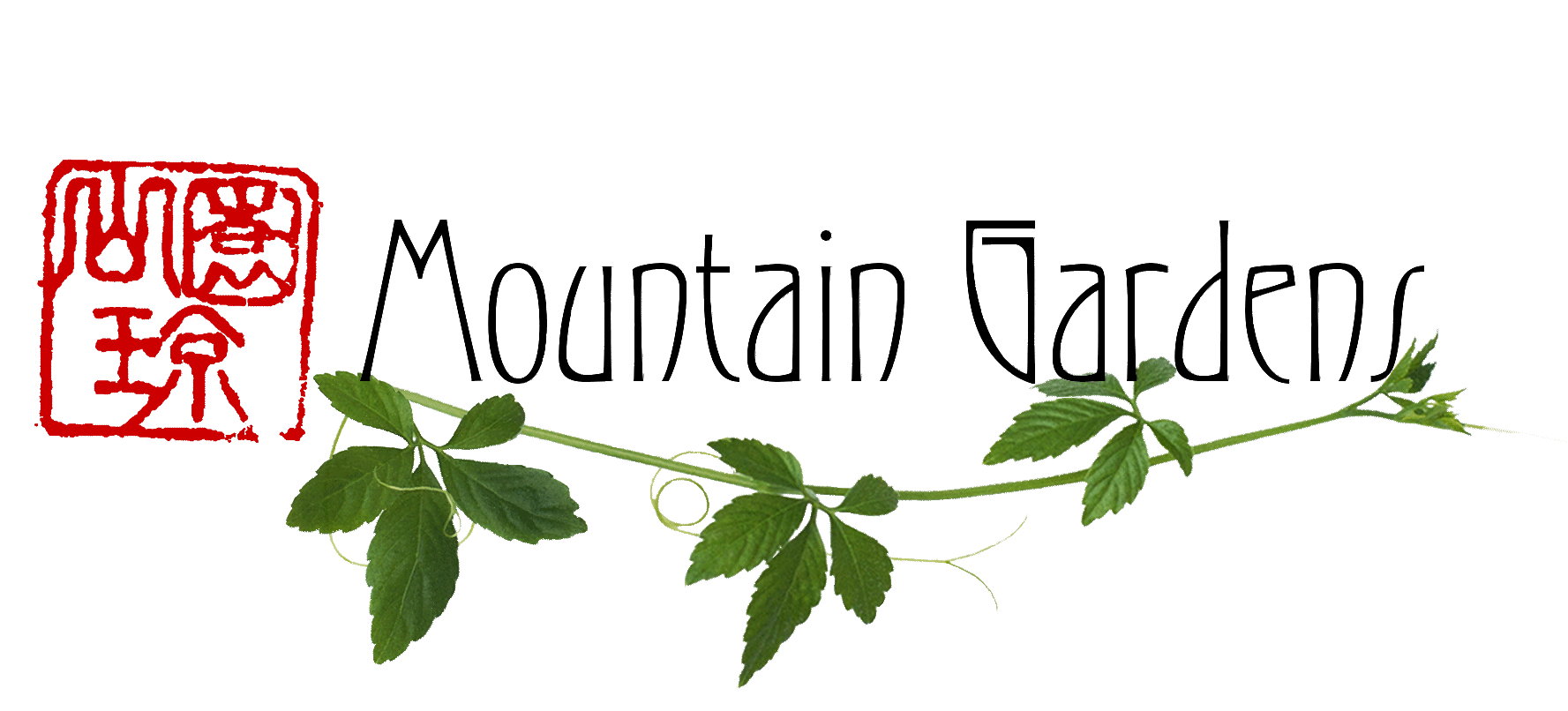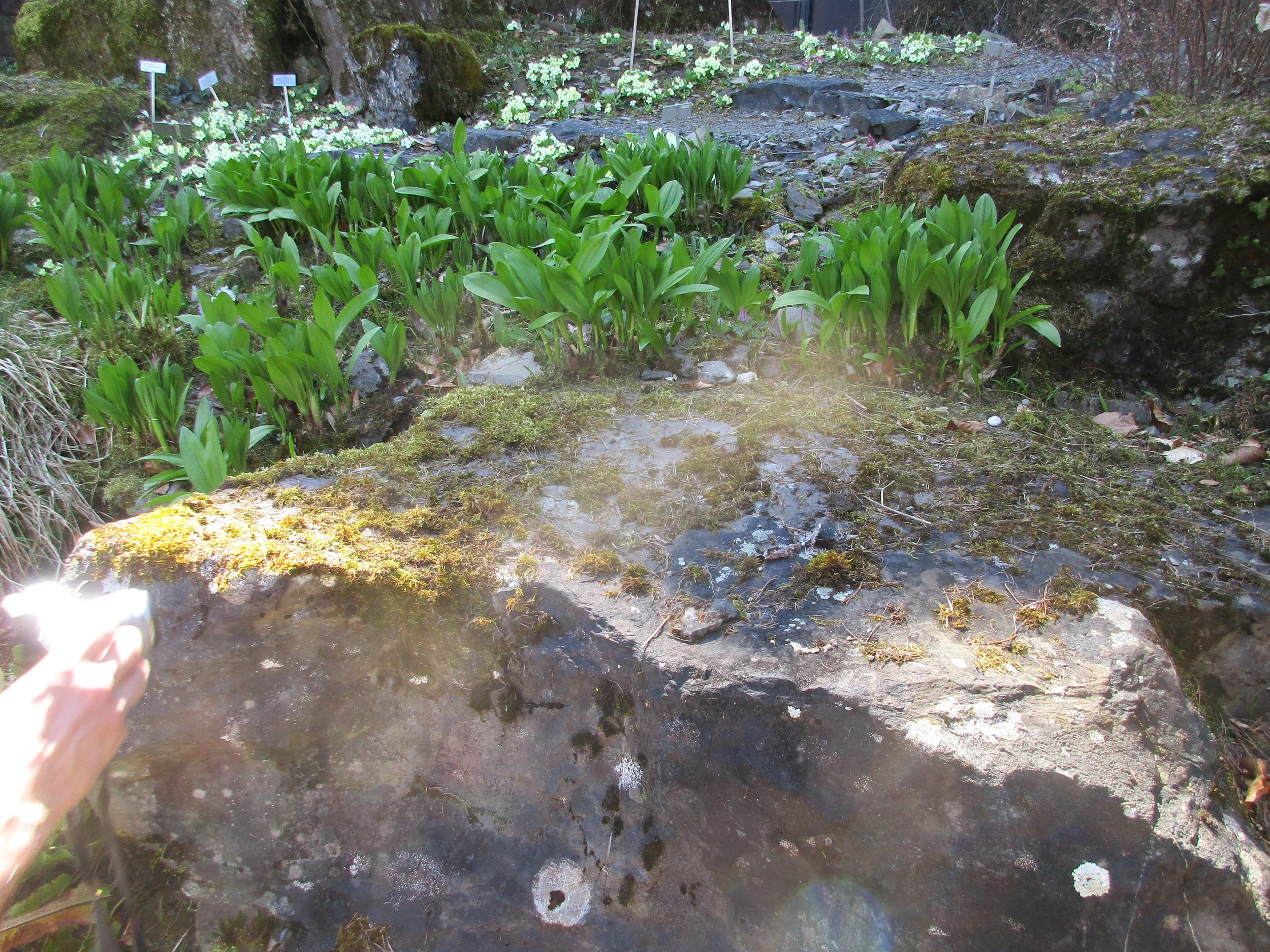A plant walk with Joe Hollis at Mountain Gardens. Filmed by Robert Maier for Medicines from the Earth virtual herb symposium in May of 2020.
Read MoreHere at Mountain Gardens, temperatures are rising and the trees have leafed out, marking the end of ramp season.
In Western North Carolina, ramp season means driving past wilting ramps in open tailgates along the highway. The local market road sign proclaims RAMPS: they lie in a box, covered in dirt, leaves bruised and wilting, roots attached. Damaged leaves are of no consequence when you count on people discarding them. On our hikes, we meet men with mattocks and backpacks, rampers…
Read MoreLast month, Joe traveled to Switzerland to attend The Potential of Perennials for Food System Resilience Symposium, in Stans, where he and other keynote speakers discussed the need for a necessary agricultural paradigm shift in a world of climate disruption and scarce resources.
The symposium’s discussion centered around the role that perennials can play in a restorative agriculture. Perennials have the potential to support much-needed soil restoration, an increase in biodiversity (at present, only 12 plant species… account for 70% of nutrition (ProSpezieRara Germany 2014)), and water storage in the soil. But more than this, the symposium also promoted them as an exciting potential for carbon sequestration: like all plants, perennials pull CO2 out of the atmosphere and convert it to plant material and/or soil organic matter with the help of microorganisms–but the difference being that this carbon is kept in the soil (whereas with annuals, carbon eventually returns to the atmosphere with harvest and tilling).
Read MoreThe color green is returning to Mountain Gardens: naked branches on the trees are leafing out, bringing life to the mountainside and announcing the arrival of spring. Below, plants that have lain dormant underground for months are sending up new, tender growth. This is the time for sansai (Japanese for "mountain vegetables")— the tender buds and shoots of wild plants, some of which are only edible at this time of year before they grow tough and unpalatable.
Read MoreOur new calendar of events and workshops is up on the Workshops page of the website.
New for this year are the workshops Making a Woodland Garden of Useful Plants and Using Western Herbs in Chinese Medicine.
The first workshop of the year will be on April 23rd, Spring Wild Foods and Sansai. We’ll be observing, discussing and tasting seasonal wild foods, both native and oriental.
Read MoreOur wasabi seed is finally ready to ship. A packet of fifty seeds is $10 to USA address, $18 for international shipment. One gram (200+ seeds $35, 5-10 grams @$25/gram, 10+ grams @$20/gram. You can send payment via Paypal to this email address (joehollisherbs@gmail.com), or mail a check, made out to ‘Joe Hollis’ to 546 Shuford Cr Rd, Burnsville, NC 28714.
Read MoreIn the still of winter, our neighbor Matt Tibbets came by to shoot an aerial video of the garden, while there was a lot of visibility. Check it out, along with some other new videos on our You Tube channel:
Read MoreI am trying to make a Paradise Garden, a garden which fulfills all my (our) needs, and so it should go without saying that it must be a beautiful garden, indeed the most beautiful (to me) garden in the world. I have a ‘need’ to live in a beautiful environment – I think we all do. The contents of my garden are ‘useful plants’ for food, medicine, etc.; but these can be arranged so as to compose an inspiring environment or a boring, utilitarian one. Inspiring (latin) = enthusiasm (greek), both referring to ‘the god within’. I want, we all want, to step out the door into an environment which lifts us out of our petty concerns and reminds us that we are a part of the huge, beautiful world. The garden (meaning, basically, your entire property) should be the place you’d rather be than anywhere else. And this is entirely possible. It’s what our hunter/gatherer ancestors had; they lived in awe of, and thanksgiving for, their environment; they ‘walked in beauty’. Can we get it back?
Read MoreWhat we did in 2014
Read MoreA CONTEMPORARY PARADISE GARDEN
Mountain Gardens began in 1972, when I obtained 2.8 acres of woodland in the high mountains of western NC. Almost from the start, the intention has been to develop a garden which addresses the problems of our times: environmental destruction, war & economic injustice, personal distress & dissatisfaction. Paradise Garden theory holds that these are all manifestations, at the different levels of life (planet, species, individual) of a single problem: that humans no longer occupy a valid niche in Gaia, the superorganism of which we are a part.
Read MoreWhat it is: After a few years of experimentation, and with almost no requests for replacements, we are this year offering a wide range of ‘bare-root’ plants for sale. This means that, after receiving your order, we dig up a plant, or division of a plant, cut back the top, shake off most of the dirt, wrap the roots in moist paper and then plastic, wrap the whole plant in paper, and pack the plants in a prepaid Priority Mail box for immediate shipment. We ship early in the week so that you will receive the plants before the weekend. You should plant immediately, either direct into the garden or into pots, and provide appropriate after care (watering and, if necessary, shading).
Read MoreSansai means, literally, ‘mountain vegetable.’ Mountain vegetable implies wild vegetable., as opposed to cultivated (on the plains). Mountains are high, closer (than plains) to heaven. Mountain vegetables, because they are wild, because they grow closer to heaven, embody more qi(ch’i) (usually translated as ‘energy’ – this is the energy which flows in the acupuncture channels, and is activated by ‘Tai Ch’i’ exercises).
Read MoreA look at everything that happened in 2012
Read MoreWe have a lot of very exciting projects ongoing. This winter I had the opportunity to spend a lot of time in the excellent library at UNC Chapel Hill and discovered a lot of obscure reference material, some of which I managed to purchase on line, others have been added to our library thanks to xerox. All of these projects involve both research and gardening, and in both areas we have made significant progress in the past year and look forward to greater progress in 2013. Here is a rundown on the diverse range of projects we’re working on:
Read MoreYes, there is an apprentice program for 2013 and below are some thoughts about it. (Below that are last year’s thoughts, and below that the previous year… It’s all pretty much still relevant, except Steve is gone).
Read MoreThe first day of October arrives with a chill in the air, constant rain, and a bounty of new colors in the trees. With this change in the weather comes an opportunity to sit down at the computer.
The last weeks of summer brought a flurry of activity to Mountain Gardens. Wade and I had the opportunity to milk Goldie, the cow who lives year-round at Camp Celo. We went with Keenan, our friend and neighbor, who gave us a yogurt culture to make our own delicious yogurt out of the 2 gallons of milk we brought back to the farm.
Read MoreIn Colorado, where I lived before coming to North Carolina, the Dog Days of August might mean a long stretch of hot, dry weather with chapped lips and wilted crops, sun-hat, sunscreen, and sunglasses hiding their wearer from too-bright rays. In other parts of the U.S., these same days might bring excessive heat and humidity.
Here in Celo, August brings a different kind of weather. “It either rains every day or four times a day,” says Tom Trout, a local builder with whom we recently built a brick and cob oven for the Celo Community Center. Roger, our neighbor, told us that every year the weather turns colder on August 15. Sure enough, the evening temperatures have dropped into the 50’s, and wool sweaters have emerged from summer storage. A cool mist hangs in our valley nearly every morning, and interns keep finding new sources of moldiness in their dwellings (shoes, unused clothing, books, tincture bottles…).
The dog days are not the best for late summer-sun loving crops like tomatoes, squash, and interns. However, one crop has flourished above all: wild mushrooms! Every foray into the National Forest that surrounds us brings a medley of edible treasures.
Read More

